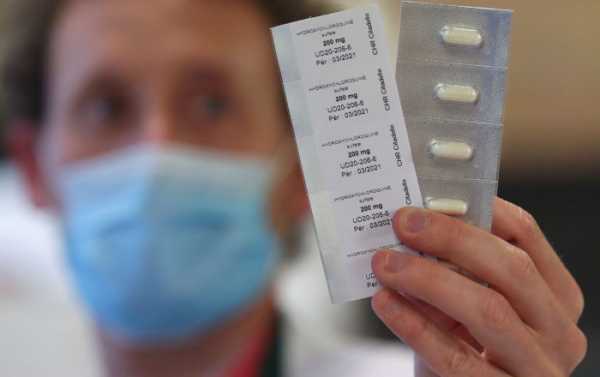
A little-known US-based firm has managed to mislead the world’s governments and health officials, bringing worldwide hydroxychloroquine studies to a temporary halt, say data scientist Mostapha Benhenda and epidemiologist Dr. Jeremy Howick, wondering how prestigious scientific journals could have been duped.
The World Health Organisation (WHO) has resumed a trial of whether hydroxychloroquine is an effective medicine against COVID-19 after suspending it due to a study which later turned out to be dubious.
The study by small and little-known company Surgisphere was used as a reason for halting trials and even banning the drug for coronavirus patients by a number of countries. The firm claimed that it had analysed data from 96,032 patients with COVID-19 from 671 hospitals across six continents finding increased mortality rates among those treated with hydroxychloroquine. However, investigations by independent observers have exposed obvious flaws in the research co-authored by Surgishere’s chief executive, Sapan Desai, and promoted by prestigious scientific journals The Lancet and New England Journal of Medicine (NEJM).
Three Glaring Flaws in Surgisphere’s Data
Mostapha Benhenda, data scientist and founder of the Melwy, an online lab in artificial intelligence, raised a red flag over Surgisphere’s study as early as 26 May, just four days after it was released by The Lancet. He outlined three major flaws in the report:
· No reproducibility: authors did not release their data and had no plans to do this;
· No data traceability: authors didn’t release the names of people who were responsible for data collection at hospitals;
· No review transparency: The Lancet did not release the names of any referees; the only signed editorial validation came from Lancet editor-in-chief Richard Horton.
However, the scandal did not end there as neither the WHO nor The Lancet, nor the NEJM have explained so far why they had taken on faith Surgisphere’s questionable data, the scientist notes.
“No internal investigation was started. Robert Horton didn’t even resign, he is tweeting the issue as if he was an external observer. What a disgrace!” he highlights.
According to him, what actually happened is that WHO “got fooled” by The Lancet, a 197-years old academic journal, which in its turn “got fooled” by the co-authors of the dubious report, including Mandeep Mehra, a Harvard professor and medical director of the Brigham and Women’s Hospital (BWH) with 477 publications.
The Lancet & NEJM’s Reputation is Tarnished
It is hard to understand how the editors at The Lancet and the NEJM did not see the problems with the data in the papers, agrees Dr. Jeremy Howick, clinical epidemiologist at the University of Oxford.
The epidemiologist observes that Surgisphere’s study should have immediately prompted skepticism due to the obvious lack of transparency. “To be trustworthy, they have to share their data and methods transparently”, he underscores.
Manipulations of data are extremely dangerous, Howick stresses, adding that the damage is done.
“The two papers about hydroxychloroquine we now believe to be based on faulty data, let to the World Health Organisation (WHO) suspending testing hydroxychloroquine in a trial. This means that a potentially beneficial treatment is not being tested, and patients will suffer as a result”, the epidemiologist underscores.
As for The Lancet and the NEJM, the publication has dealt a heavy blow to the reputation of both medical journals, according to Howick.
The views and opinions expressed in the article do not necessarily reflect those of Sputnik.
Sourse: sputniknews.com
0.00 (0%) 0 votes


































